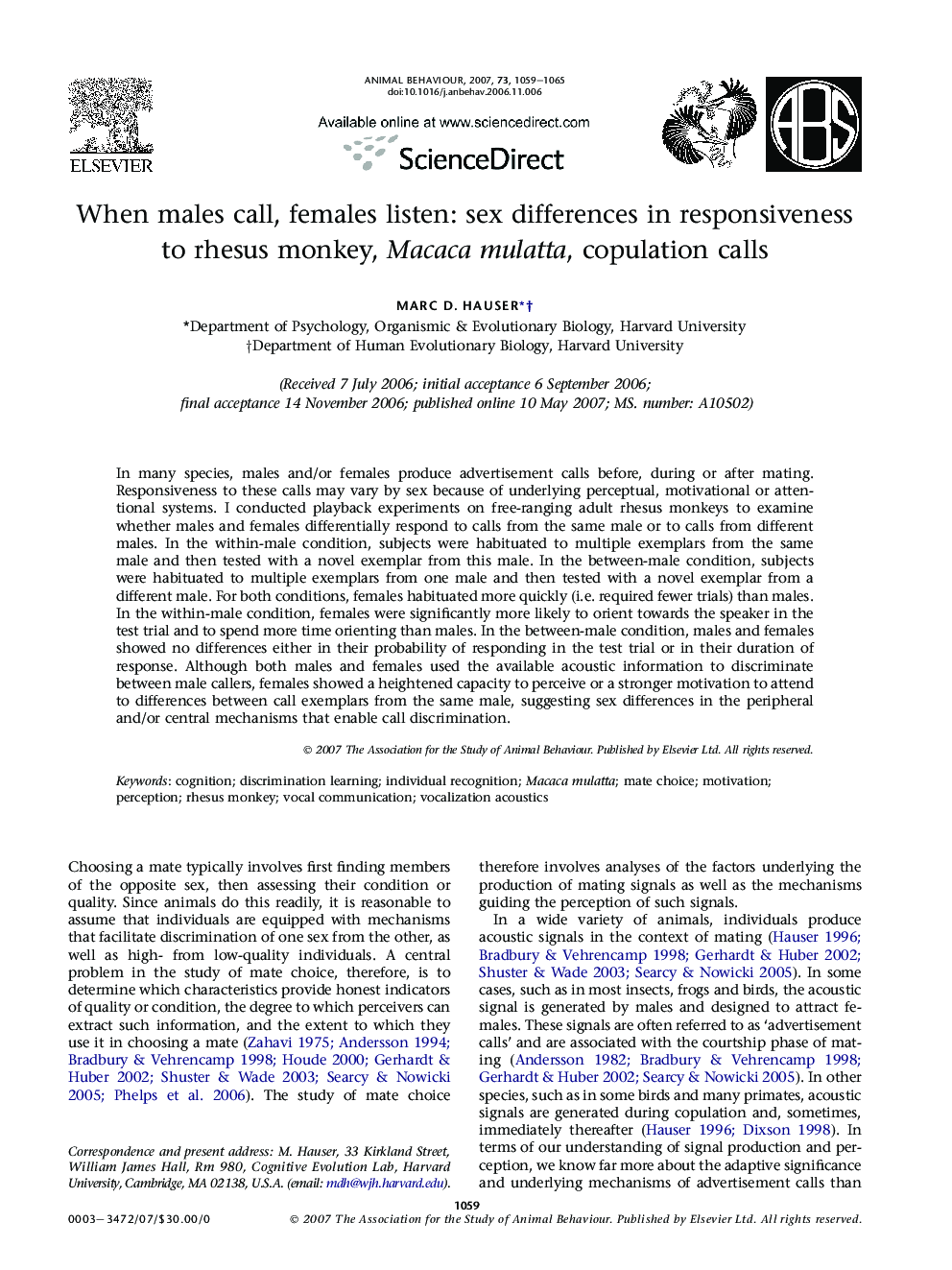| Article ID | Journal | Published Year | Pages | File Type |
|---|---|---|---|---|
| 2418201 | Animal Behaviour | 2007 | 7 Pages |
In many species, males and/or females produce advertisement calls before, during or after mating. Responsiveness to these calls may vary by sex because of underlying perceptual, motivational or attentional systems. I conducted playback experiments on free-ranging adult rhesus monkeys to examine whether males and females differentially respond to calls from the same male or to calls from different males. In the within-male condition, subjects were habituated to multiple exemplars from the same male and then tested with a novel exemplar from this male. In the between-male condition, subjects were habituated to multiple exemplars from one male and then tested with a novel exemplar from a different male. For both conditions, females habituated more quickly (i.e. required fewer trials) than males. In the within-male condition, females were significantly more likely to orient towards the speaker in the test trial and to spend more time orienting than males. In the between-male condition, males and females showed no differences either in their probability of responding in the test trial or in their duration of response. Although both males and females used the available acoustic information to discriminate between male callers, females showed a heightened capacity to perceive or a stronger motivation to attend to differences between call exemplars from the same male, suggesting sex differences in the peripheral and/or central mechanisms that enable call discrimination.
